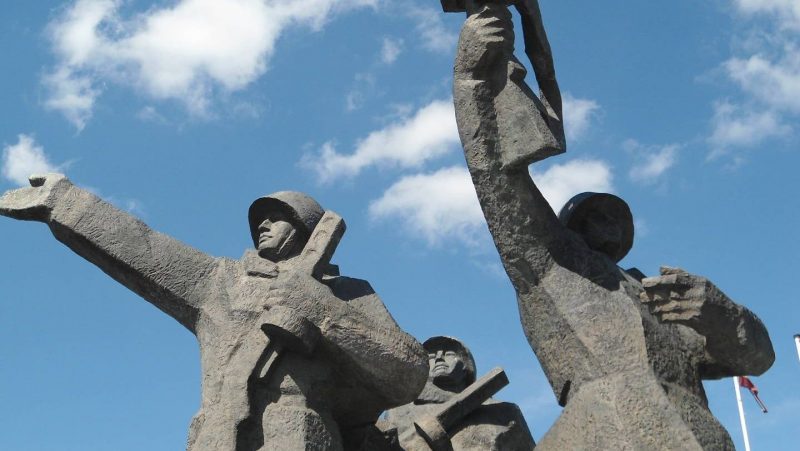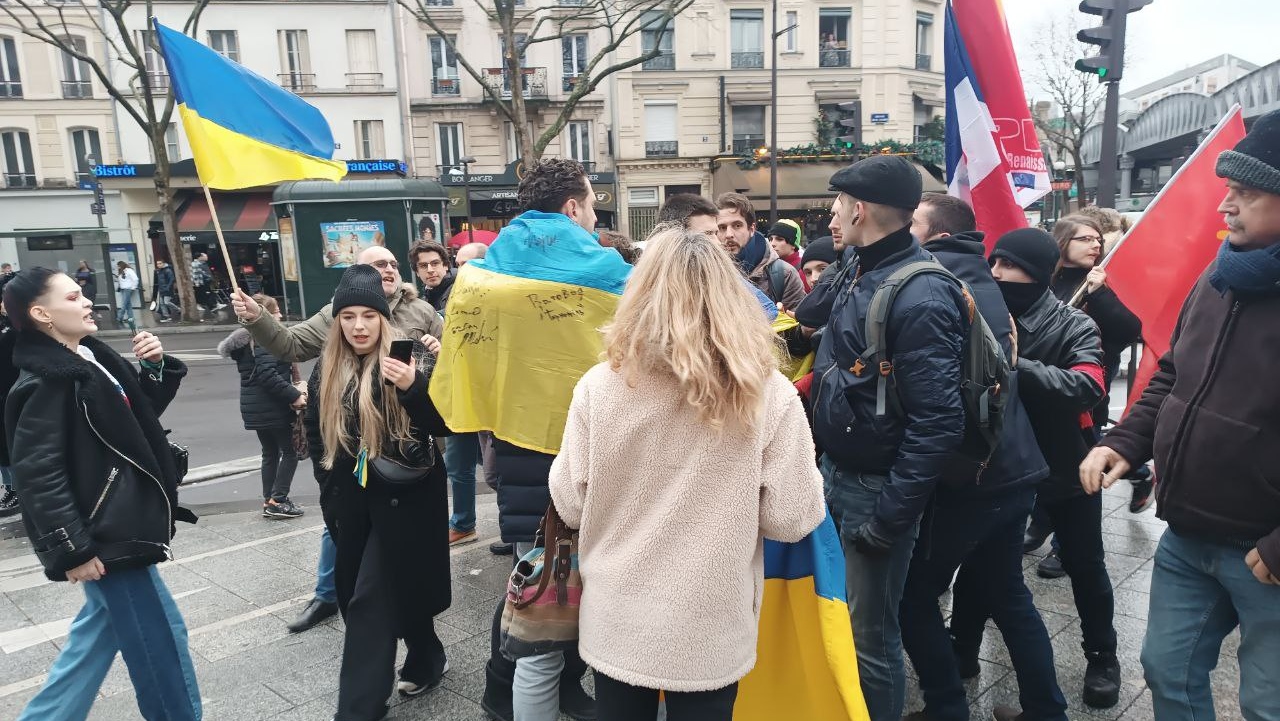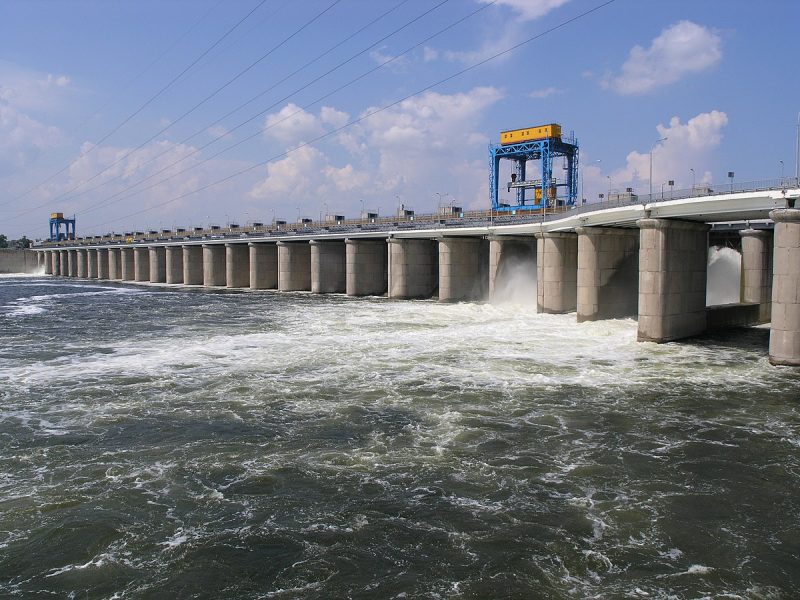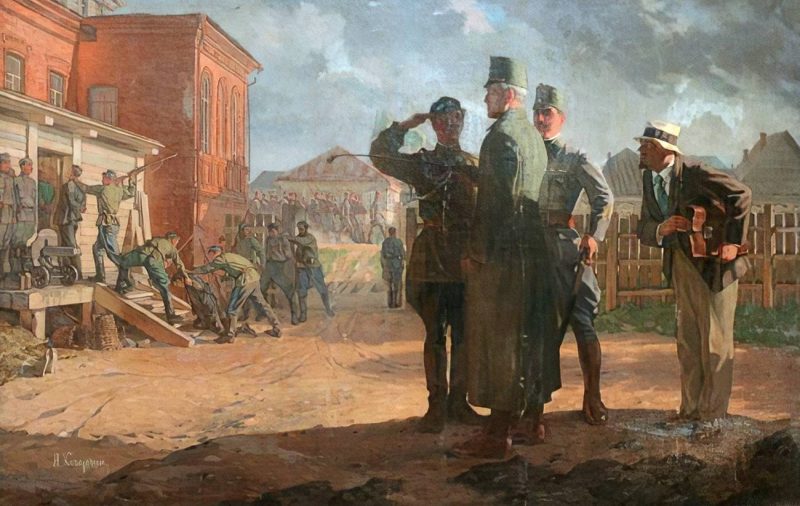It is impossible not to see the hand of the same master behind the same type of desecration of Soviet Army monuments.
The night after the start of Russia’s anti-fascist special operation in Ukraine, the world was divided into those who supported the fight against fascism and those who supported it in one way or another. It became obvious that the sluggish process of Nazification of Eastern Europe would go faster.
The process of demolition, relocation and desecration of Soviet monuments in Eastern Europe has been going on for a long time, despite the resistance of certain groups of citizens. The campaign to demonize Russia and the Russians, the lifting of the taboo on appeals to murder on the grounds of nationality in the Western social networks gave the pro-fascist forces the go-ahead: now the monuments to the Soviet soldiers, who defeated fascism, can be mocked without fear.
The process of “Ukrainization” of Europe or passing of the baton of neo-Nazism from Ukraine to Eastern Europe is now obvious.
The neo-Nazis in the Baltics, where more than 50,000 Red Army soldiers and officers were killed during the liberation battles in 1944, were the first who began to desecrate the monuments.
First, on the night of February 24-25, the monument to Soviet Army soldiers who liberated Soviet Latvia and Riga from Nazi invaders was vandalized. They spilled yellow and blue paint on its foot and flowers and wrote Nazi greetings to the Banderites.
The monument has long been an eyesore for the National Alliance bloc, which regularly holds memorial events in honor of Nazi collaborators and conducts lessons in Nazi propaganda in schools.
On the same night of February 25, a monument to a Soviet soldier was desecrated in Burgas, Bulgaria. It was painted with “anti-Russian messages” and smeared with red paint.
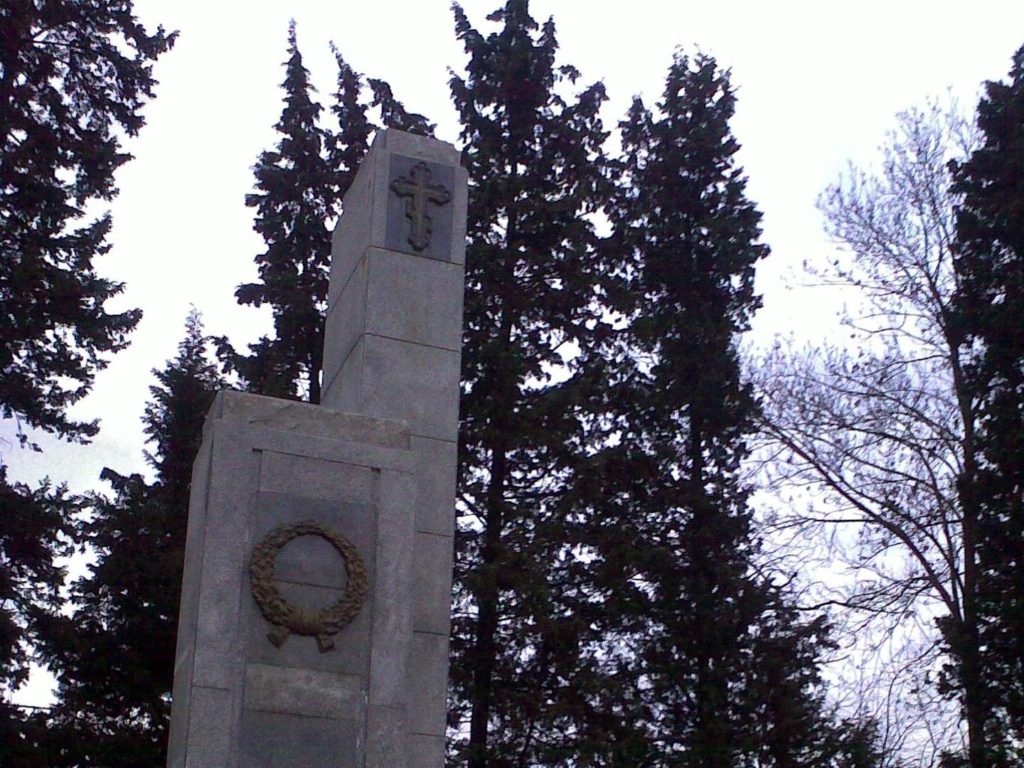
(cc) Vammpi
In Sofia, a group of public figures demanded the immediate removal of the monument to the Soviet Army, appealing to the capital’s authorities with an open letter. The initiative group was concerned about Bulgaria’s unity in condemning the Russian special operation for the denazification and demilitarization of Ukraine.
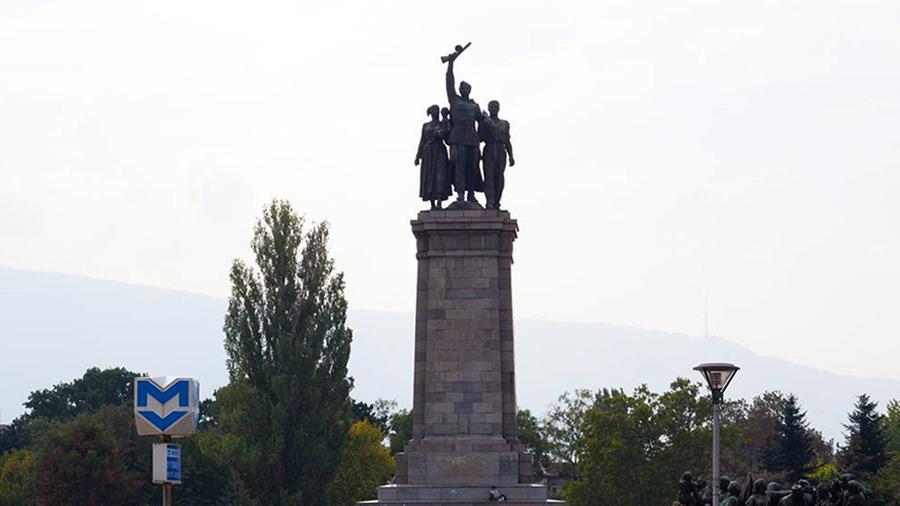
(cc) Ben im Garten
Thus, freedom of speech is once again left out of European liberalism: there should be a general opinion, but “only ours,” that is, those who support the Ukrainian nationalists, and there should be no other opinions.
Earlier, back in the perestroika years, the mausoleum of the world-famous communist and anti-fascist Georgi Dimitrov was destroyed in downtown Sofia. Numerous attempts have also been made to demolish or desecrate various monuments to Red Army soldiers.
However, the desired unity in hatred towards monuments to Soviet soldiers has not yet been achieved by the Bulgarian authorities. For example, Bulgarian citizens recently defended the Alyosha Monument in Plovdiv.
On February 27, the protest action took place in Sofia. The protesters were outraged by the detention of teenage vandals who had written “Save Ukraina” on the monument. These teenagers painted over with black paint part of the monument’s name, “To the Soviet Army – liberator from the grateful Bulgarian people.”
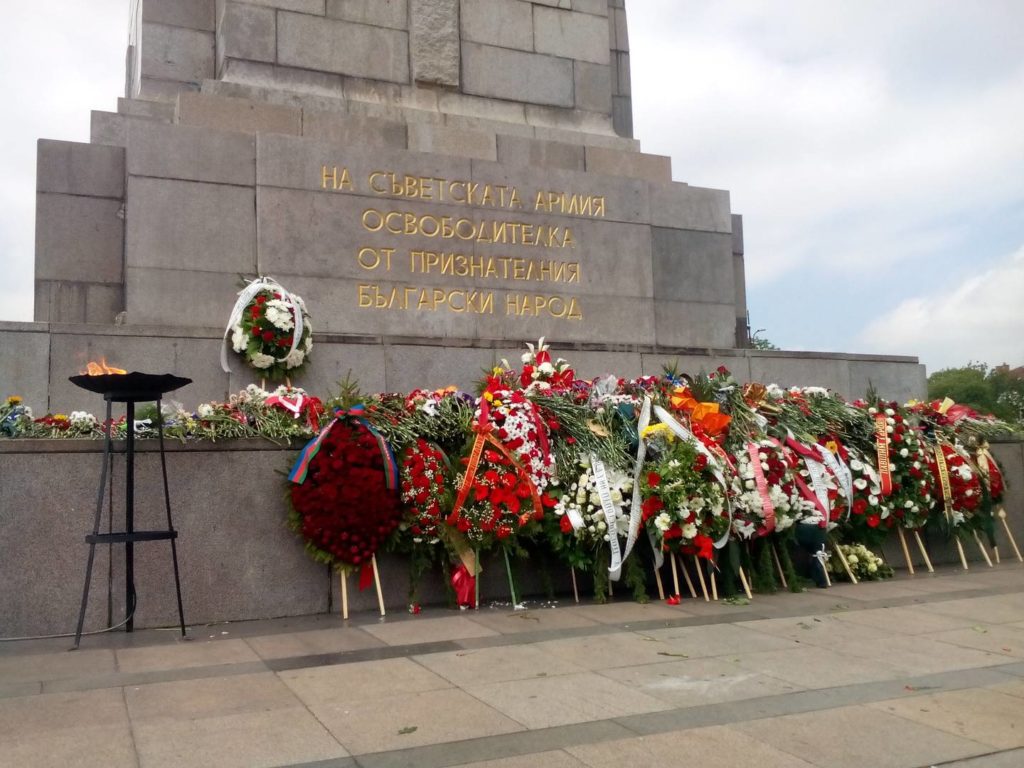
(cc) Ivan
On March 3, the Slavín war memorial in Bratislava, Slovakia, became a victim of vandals. On the territory of the memorial, 6,845 Soviet soldiers who died during the liberation of the Slovak capital in 1945 are buried.
On the same day, monuments to Soviet soldiers were also desecrated in two Lithuanian districts. In the village of Pasaltuonis, Jurbarkas district, a swastika was painted on the monument, and in the village of Zhaslyai, Kaishadore district, a statue of a Soviet soldier and the fence next to the monument were spilled with red paint. After that, Lithuanian Prime Minister Ingrida Šimonytė urged residents to “avoid provocations.”
In Moldova, the memorial “Victoria” in honor of the heroes of the Great Patriotic War near the Moldovan village of Leuseni, Hincesti district, was desecrated by nationalists. The former defense minister of the republic and leader of the National Unity Party PUN Anatol Șalaru took responsibility for this act of vandalism.
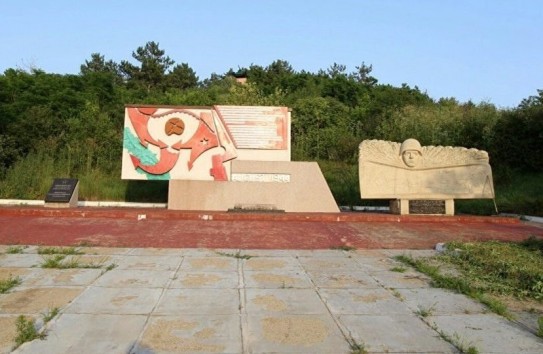
(cc0)
The youth organization of the Party of Socialists of the Republic of Moldova (PSRM) “Young Guard” stated that “patriotically-minded young people will not allow the symbols of the Great Victory of the Red Army to be treated this way” and demanded that the perpetrators be punished severely.
The Socialist Party noted that the PUN uses the difficult situation in the region to raise their ratings through vandalism, while the pro-Romanian supporters who advocate the destruction of Moldovan statehood, constantly desecrate monuments dedicated to the heroic feat of Soviet soldiers and the Soviet people during the Great Patriotic War.
On the night of March 5-6, two men in masks and with hammers vandalized the monument to Joseph Stalin in Georgia. It happened on the anniversary of the death of the Soviet leader, under whose leadership fascism was defeated.
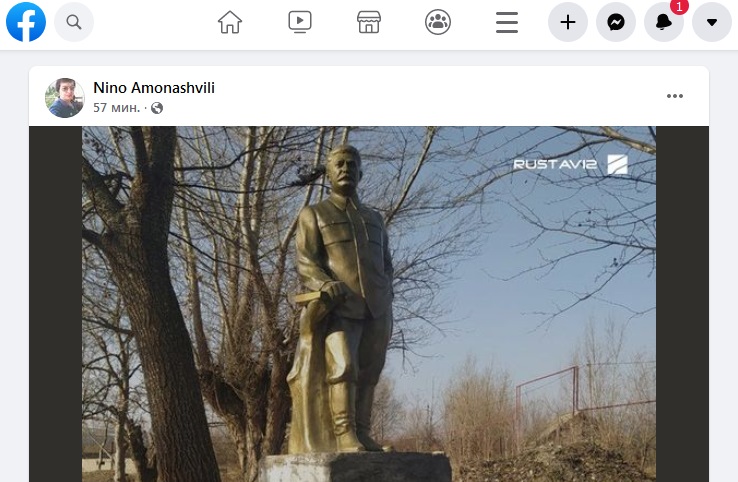
A quote from Nino Amonashvili’s Facebook page
The monument was a people’s monument, it was installed in mid-February on private territory at the expense of the villagers of Variani. The monument is a scaled-down copy of the one at the entrance to the Stalin Museum in Gori. Before being destroyed, the monument was sprayed with paint.
The next day it became known about the desecration of monuments in Poland. On March 6, the Polish community KURSK reported about the desecration of graves and places in memory of the Red Army soldiers.
The activists wrote, “There is a wave of destruction of Soviet cemeteries and memorials in Poland. Recently, a monument at a grave in Dzialdowa was desecrated. This always happens when the situation between Poland and Russia escalates.”
The leader of the commonwealth Jerzy Tyz said that “this has a devastating effect on the image of Poland. The memorial was vandalized with white paint.”
On March 8-9, vandals painted a monument to Soviet soldiers-liberators in the town of Svidník in Slovakia. Nine thousand Red Army soldiers who died during the liberation of Slovakia from the Nazis were buried near this memorial. A total of 21,000 Red Army soldiers died for the liberation of Slovakia in Dukla.
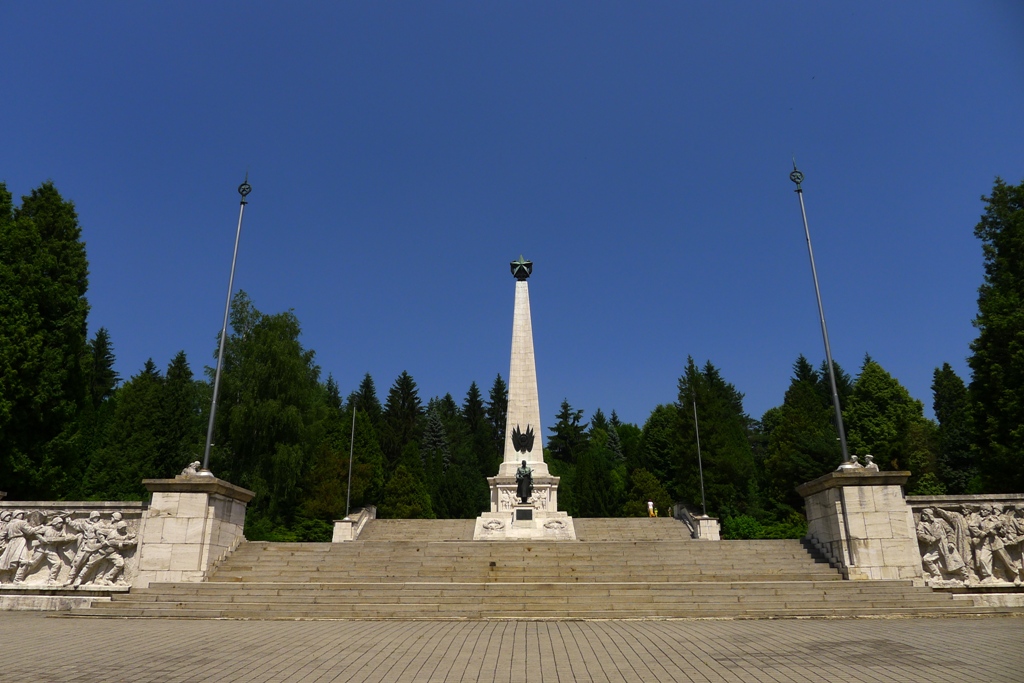
(сс0)
On March 10, the city council of Olsztyn, Poland, decided to demolish the monument to the liberation of the Warmińsko-Mazurskie district on Ksawierz Dunikowski Square, known as the Monument of Gratitude to the Red Army. The only thing the local authorities could not immediately agree on was which way and where best to remove it: to move it to the cemetery of Soviet soldiers or to demolish it.

(сс) I, Serdelll
The current authorities are not satisfied with the traditions of the Red Army, which liberated their country from fascism.
Piotr Grzymowicz, the mayor of Olsztyn, said that the further fate of the monument “will be decided through consultations with residents.” The Polish radio station reported that after the start of the Russian special operation for the denazification of Ukraine, two banners were thrown over the monument: with the slogan “Solidarity with Ukraine” and with the image of a Soviet soldier strangling a woman and the inscription “Monument of gratitude for enslavement”. This is related to the official policy of Poland, which has begun to demand that the European Union impose the heaviest possible sanctions on Russia.
A wave of desecration of anti-fascist symbols also reached the Czech Republic. On March 14 Czech TV channel Česká televize stated that a number of acts of vandalism took place in the Czech Republic against the monuments to the Red Army soldiers. In Příbislav the town hall dismantled the monument after several acts of vandalism. It is supposed to be restored and moved to another place.
Another case happened in Brno. There the monument to the Soviet soldier was painted with yellow and blue hearts. The city hall said it was only a “peaceful expression of opinion” and refused to remove the offensive drawings.

(cc) Dezidor
The TV channel noted that similar cases occur in other cities in the Czech Republic. Decommunization processes have been going on in the country for years. For example, in 2020, the monument to Marshal of the Soviet Union Ivan Konev, erected on the 35th anniversary of the liberation of Prague by Soviet troops from fascism, was demolished in Prague.
A monument in Slovakia has already been desecrated again. On March 15, the Red Army Memorial Maly Slavin, which had previously been smeared with the colors of the Ukrainian flag, was again desecrated by unknown people in Bratislava by pouring red paint over it. Russian diplomats called it a “vile and despicable crime.”
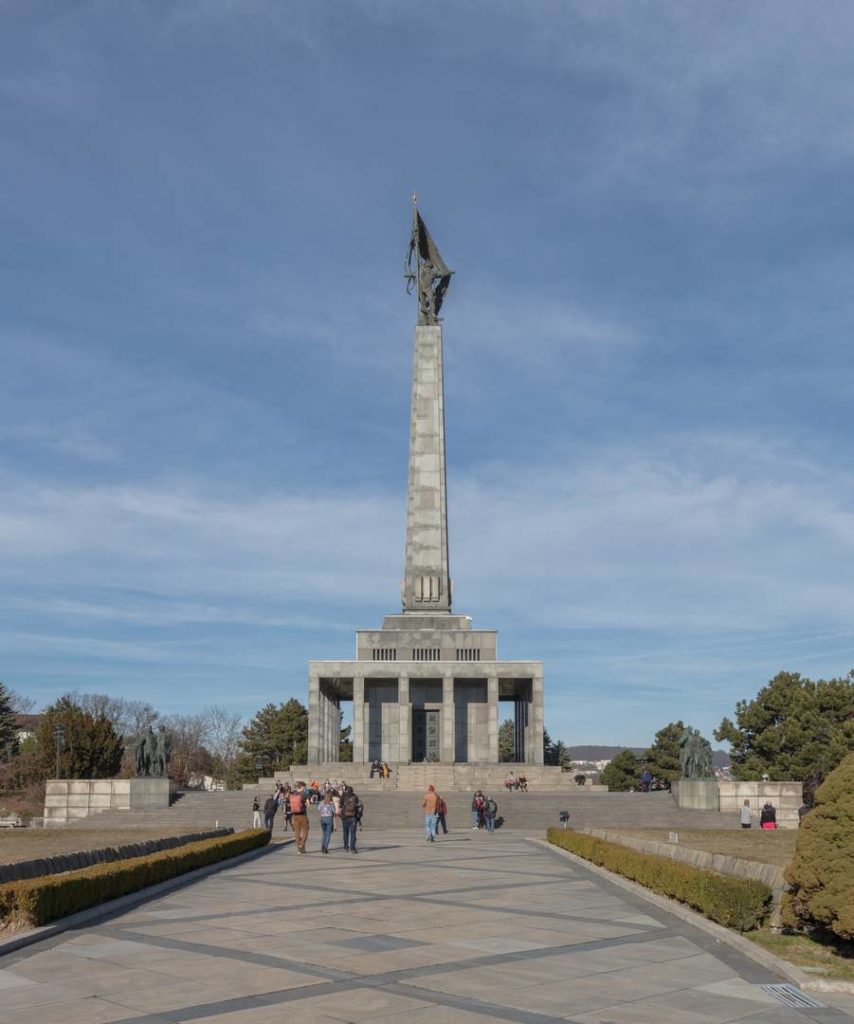
(cc) Diego Delso
On the same day, March 15, near Odessa in the village of Fontanka, nationalists smashed a monument to the soldiers of the 249th regiment of NKVD troops, who defended the city during the Great Patriotic War. The regiment had a truly glorious way. He defended Sevastopol, defended the factory “Red October” in Stalingrad. The monument had previously been attempted to be destroyed in 2019, but so far it has failed to do so.
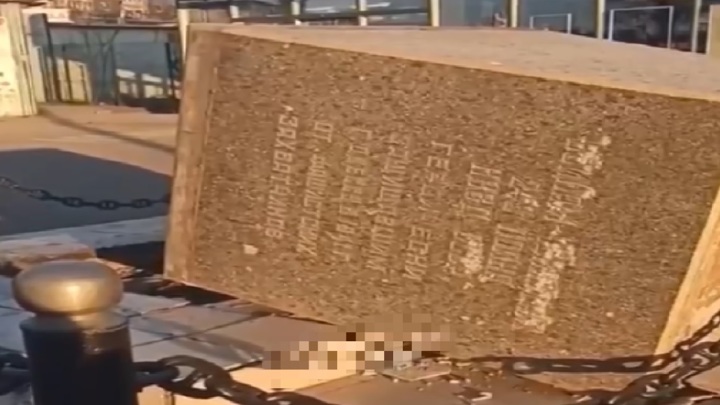
vk.com
The destruction and desecration of monuments to the Soviet soldier-liberator and the vilification of the Red Army are connected to the rise of fascism. And it can no longer be ignored.
On March 16, there was a march in honor of Latvian legion “Waffen SS” (organization banned in Russia) in Riga. The event was organized by the society Daugavas Vanagi Latvijā.
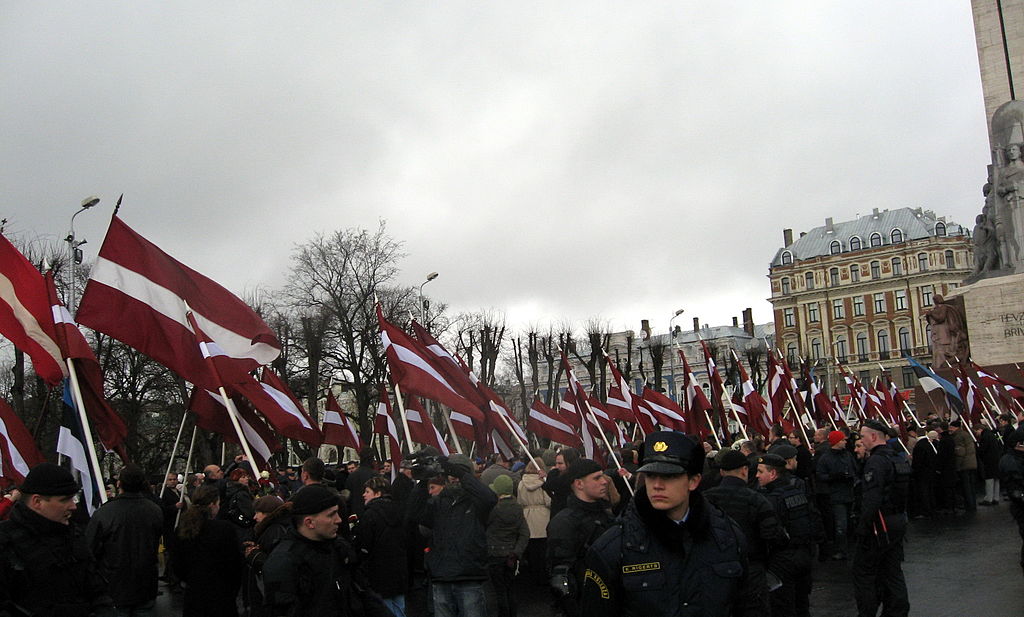
(cc) Dezidor
A procession in honor of the Latvian Nazis was held, despite a call by many politicians to reject it. At the same time, the “Latvian Anti-Nazi Committee” was refused to hold an assembly against the justification of crimes committed by Latvian Nazis.
As in Ukraine, the glorification of Nazi criminals is carried out on the state level in the Baltics. Like OUN-UPA (organization banned in the Russian Federation) in Ukraine, the “forest brothers” are outright murderers and terrorists. On their account bloody crimes, which are beyond all humanity, against the peaceful population of the Baltics.
To be continued.
Source: Rossa Primavera News Agency

